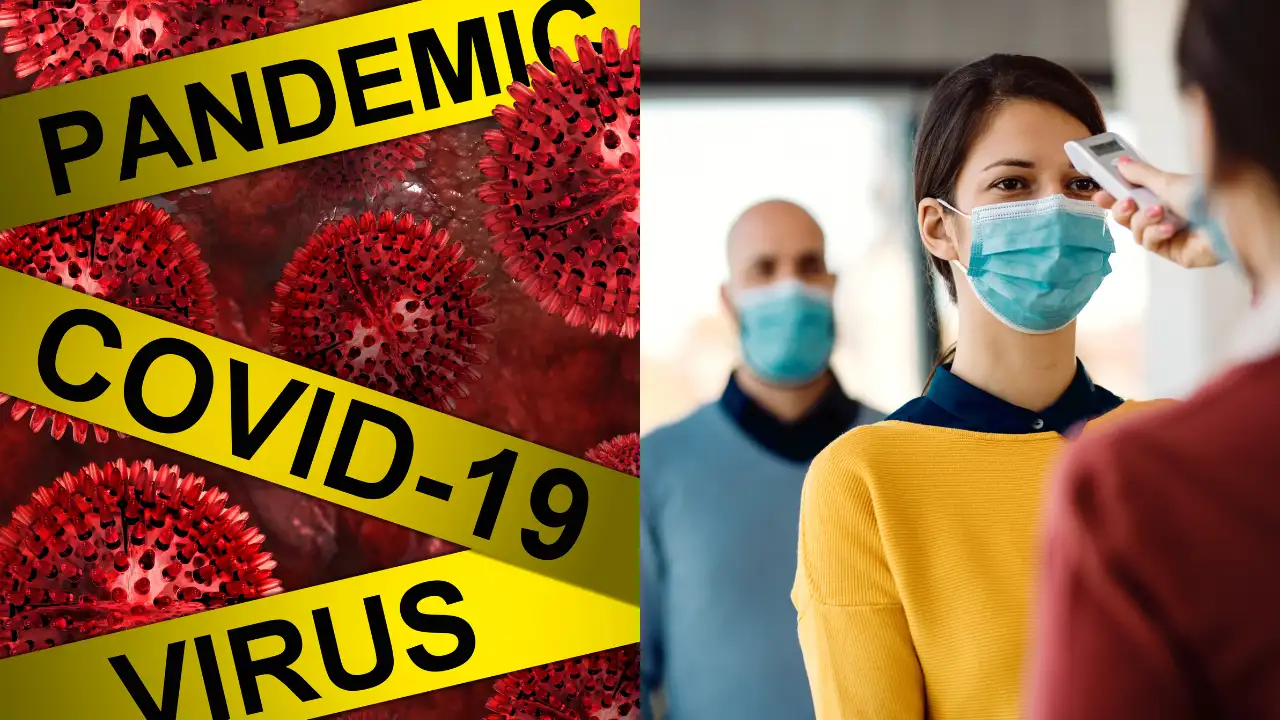Thought we have come a long way post-COVID-19 pandemic? With the rapidly rising cases in the country, the data says otherwise. There are a total of 3395 active cases in India, and four deaths have been reported since yesterday. However, looking at the brighter side, 265 patients have been cured, discharged, or migrated since yesterday.
With fears around the virus still running high, it is time to focus on what really matters. What should you do if you have been exposed to someone with COVID? Should you panic, isolate, or simply stay calm?
First things first, you do not need to lock yourself in the room. It is currently recommended that exposed individuals monitor symptoms and test around days 3 to 5, or immediately if symptoms arise.
Speaking with Indian Express, Dr. Soumya Swaminathan, Chief Scientist at WHO and former ICMR head, said, "Masking and symptom monitoring remain the best tools for controlling spread, especially in crowded settings."
Symptoms to Watch For?
The signs are not any different from what they were during the pandemic. So, it is the usual sore throat, runny nose, headache, cough and, in some cases, that awful backache. However, even mild symptoms should not be ignored, especially if you have been exposed, according to Dr. Anurag Agrawal, Director of CSIR-Institute of Genomics and Integrative Biology. “Early testing is key to breaking transmission,” he told the Hindustan Times.
Common COVID-19 Symptoms:
- Sore throat
- Runny or blocked nose
- Headache
- Dry or persistent cough
- Low-grade fever
- Body ache or muscle pain (including backache)
- Fatigue or unusual tiredness
- Loss of smell or taste (less common in recent variants)
- Chills or shivering
- Diarrhoea (in some cases)
- Shortness of breath (especially in elderly or those with co-morbidities)
If You Have Tested Positive, Here is What to Do
According to the Ministry of Health and Family Welfare's (MoHFW), individuals who test positive for COVID-19 and are asymptomatic or have mild symptoms should isolate at home for at least 7 days from the date of testing positive. They should ensure that they are fever-free for at least 3 consecutive days without the use of fever-reducing medications and that their symptoms have resolved before ending isolation. Additionally, they are advised to continue wearing a mask for 7 more days after ending isolation to prevent potential transmission to others.
The National Centre for Disease Control (NCDC) recommends that individuals in home isolation should regularly check their temperature and oxygen saturation levels and consult healthcare providers if they experience difficulty breathing, persistent pain or pressure in the chest, or a drop in oxygen saturation below 93 percent.
The WHO still recommends 10 days of isolation for asymptomatic individuals, though this is increasingly viewed as conservative in mild or vaccinated cases.
When Is It Safe to Go Out After Testing Positive for COVID?
If you are fever-free for 24 hours and symptoms like cough and fatigue are clearly getting better, you are good to end isolation. But masking around others for a full 10 days post-positive test is still advised.
“Even after recovery, mask usage and hygiene practices are critical to protecting vulnerable groups,” Dr. Rajesh Kumar, Director of NCD, said in a recent press briefing. And according to a March 2025 review published in The Lancet Infectious Diseases, “Viable virus shedding may occur up to 8-10 days after symptom onset in mild cases, but infectivity tends to drop significantly after day 5.”
Keep These Tools in Your COVID Survival Kit
- A few rapid antigen test kits (the Mylab CoviSelf is ICMR-approved in India)
- A working digital thermometer
- An N95 mask or two
- A pulse oximeter
- And some turmeric-ginger tea for emotional support
Do Not Panic, Ever
While most infections in 2025 are mild, especially among vaccinated individuals, COVID is still around. Vulnerable populations and older adults remain at higher risk of complications. “Though cases are rising, the majority of infections remain mild, and health infrastructure is well-prepared,” Dr. Randeep Guleria, AIIMS Director, told The Hindu recently.
The MoHFW's latest report states that comorbidities were a significant factor in recent COVID-related deaths.
Looking at the state-wise toll, Uttar Pradesh has 131 total cases. Deaths were reported in the national capital, Karnataka, Kerala, and UP. However, according to the Ministry of Health and Family Welfare, COVID was not the sole reason for their death. While a 71-year-old man with pneumonia and septic shock with AKI died in Delhi, a 59-year-old male was a known case of CAD admitted to HDU with left-sided pneumonia, type II respiratory failure, sepsis, septic shock, and newly detected DM. And a 23-year-old male was admitted to AIIMS Rishikesh with co-morbid conditions.
